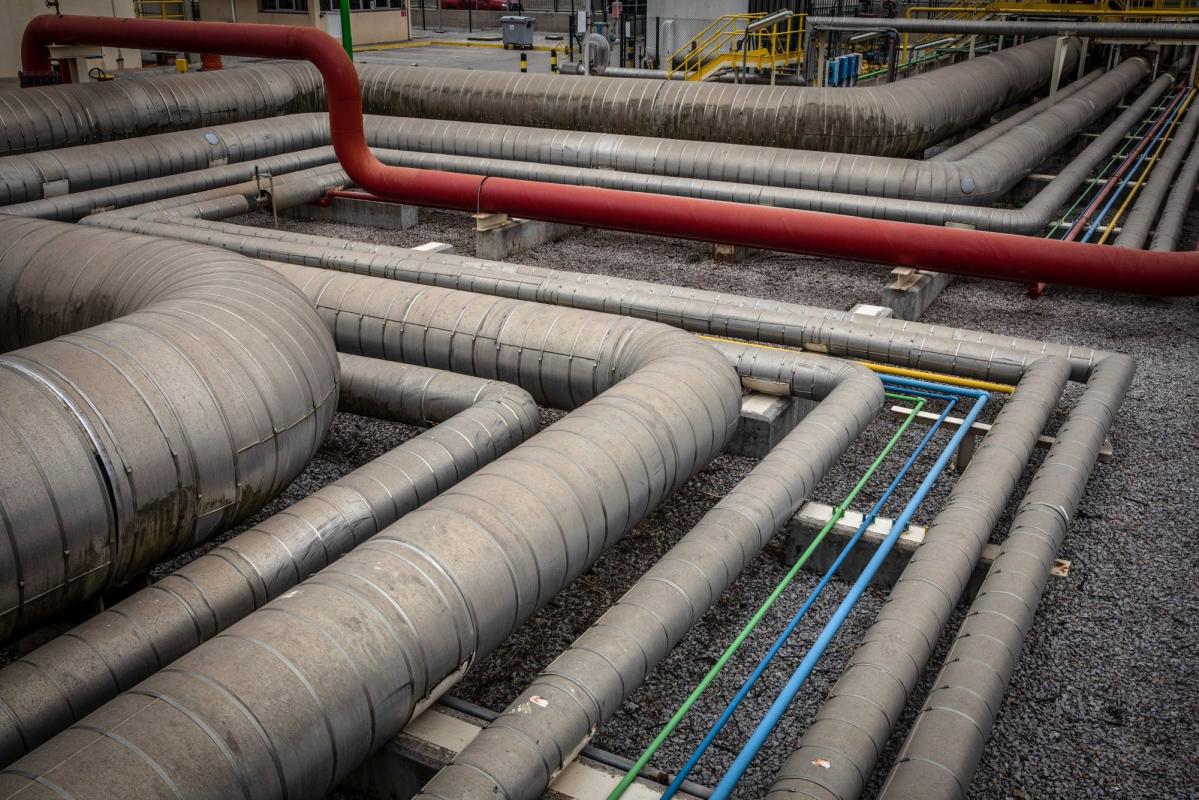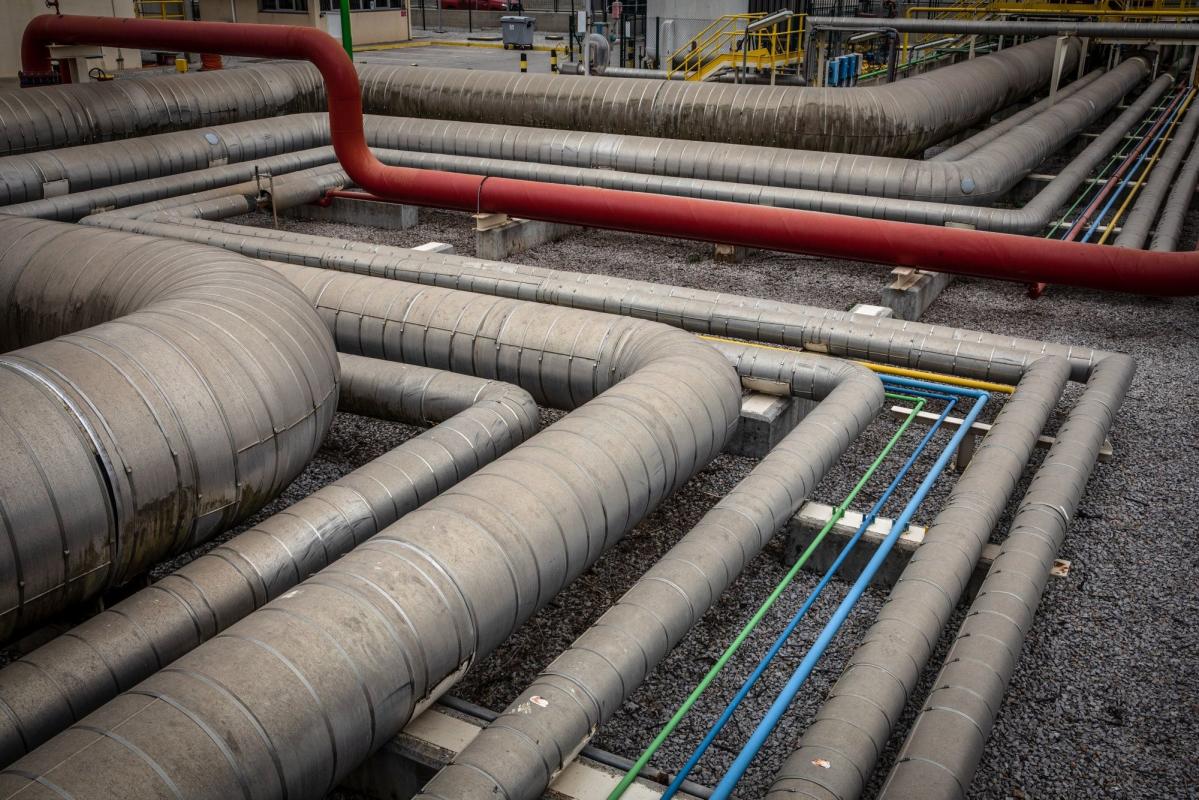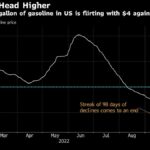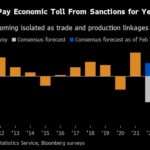
(Bloomberg) — The European Union announced a new emergency package to tackle the energy crunch, betting on steps to bolster solidarity among member states. But the bloc is refraining from immediate gas-price caps amid political divisions and concerns over security of supply.
Most Read from Bloomberg
The European Commission proposed measures on Tuesday to avoid extreme price spikes in energy derivatives and to use the EU’s joint purchasing power as a leverage in negotiations with global gas suppliers. The bloc’s executive arm, also wants to launch a new liquefied natural gas index to better reflect the region’s energy reality after a cut in supplies of pipeline gas from Russia.
“We know that we are strong when we act together,” European Commission President Ursula von der Leyen said at a news conference. “It is logical that instead of outbidding each other, energy companies should leverage their joint purchasing power.”
At stake is the future of the bloc’s $17 trillion economy, which the energy crisis threatens to push into recession as companies and consumers reel from high power and gas bills. The EU is trying to balance demands by more than a half of the EU’s 27 member states to limit gas prices with the need to avoid undermining its single market or deepening economic splits among member states.
The EU’s executive arm is also seeking authority from national governments to propose — only as a last resort — price limits on transactions on the Dutch Title Transfer Facility, whose main index is the benchmark for all gas traded on the continent. Such a measure could be used while the bloc is developing its new LNG index to avoid price hikes and limit speculation. It would need approval from EU nations in a separate process and would be valid for no more than three months.
The commission has also warmed up to the idea of capping gas prices used for electricity production, an idea it has previously criticized as risky.
“This model has been introduced in Spain and Portugal where it has reduced electricity prices,” von der Leyen said. “We believe that it merits to be considered for introduction at the EU level and we are looking right now into the available data to find responses to one or two questions that are still open. But as I said, it merits really to look deep into it and to see how we can make it operational on the EU level.”
Curbing Volatility
To create a more direct mechanism to avert gas-price volatility, the package would require trading venues to establish a new temporary intra-day volatility management mechanism in electricity and gas derivatives by Jan. 31, 2023. In a bid to avoid unintended disruptions on markets for less liquid contracts, the tool should focus on front-month energy derivatives, the document showed.
“The more successful we are regarding energy, the stronger economic and social position we will be in,” Valdis Dombrovskis, the commission’s vice-president, told European lawmakers in Strasbourg on Tuesday.
But “it won’t be possible to shield everyone from the consequences of the war,” he added in reference to Russia’s invasion of Ukraine. Instead, the EU should focus on supporting vulnerable households and the most affected businesses to avoid fueling inflation.
EU Summit
The commission’s plan will be discussed by EU leaders at a summit on Oct. 20-21 in Brussels. They may endorse a plan to “explore a temporary dynamic price corridor on natural gas” that would be implemented before a new LNG index is in place and are likely to support joint gas purchases, according to a draft political statement by the heads of government seen by Bloomberg News. In the next step, energy ministers will debate the specifics at a gathering in Luxembourg on Oct. 25.
A further emergency meeting of energy ministers is expected in mid-November to sign off on the proposals.
Read more: EU to Boost Protection of Infrastructure as Sabotage Fears Grow
The common purchase platform would coordinate the filling of gas reserves. If storage supplies are depleted at the end of this winter, meeting the 90% filling goal by November 2023 may be more difficult next winter, according to the commission. The plan is to mandate member states to jointly purchase enough gas to account for at least 15% of their storage and allow companies to form a European consortium to negotiate long-term contracts. Russian supply sources would be excluded from participation.
To avoid blackouts and rationing in the heating season, the EU has already agreed to a voluntary 15% gas consumption cut target, with an option of a mandatory trigger. The commission will closely monitor demand reduction measures and stands ready to activate the switch to compulsory cuts or even revise the goals if current measures prove insufficient, according to the proposals.
The package also offers tools for member states to use state aid to mitigate the impact of high energy crisis on companies and households, with member states offered the possibility to use as much as €40 billion ($39.5 billion) from the bloc’s cohesion funds. To boost liquidity in energy markets, the commission will propose increasing the clearing threshold for non-financial counter parties to €4 billion and broadening the list of eligible assets that could be used as collateral for one year.
In addition to that, the commission is seeking to strengthen its RePowerEU strategy to win energy independence with additional common funding.
Read more: EU to Propose €40 Billion Fund to Mitigate Energy Price Fallout
(Updates with new von der Leyen quotes starting in sixth paragraph)
Most Read from Bloomberg Businessweek
©2022 Bloomberg L.P.




